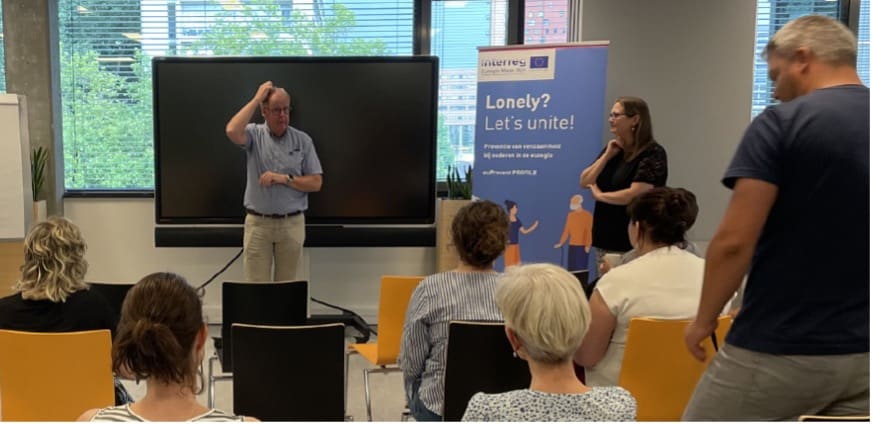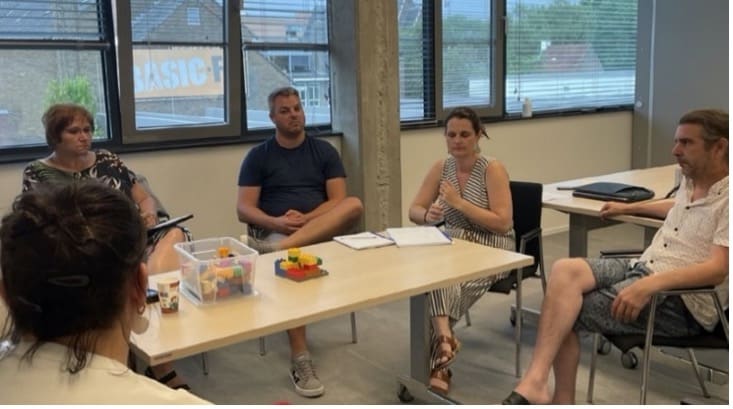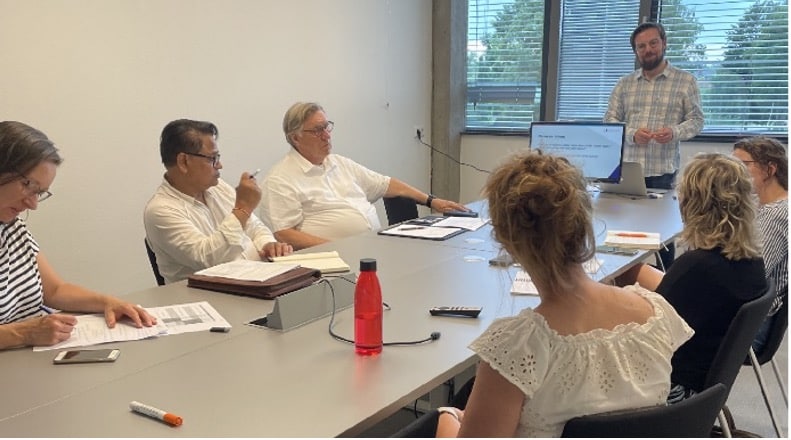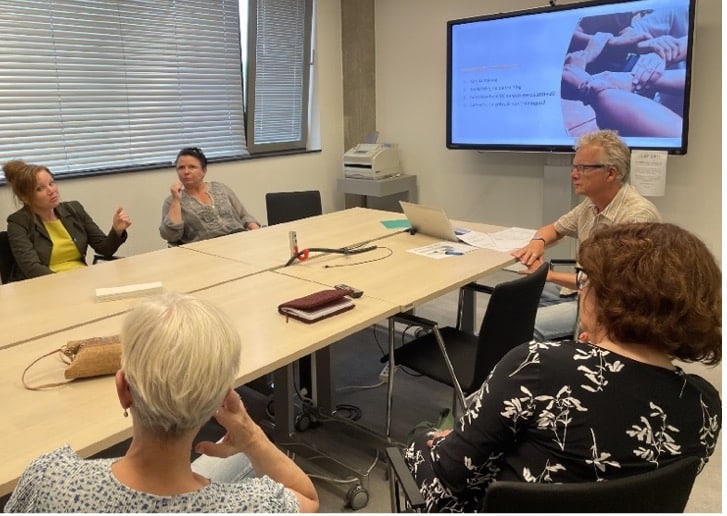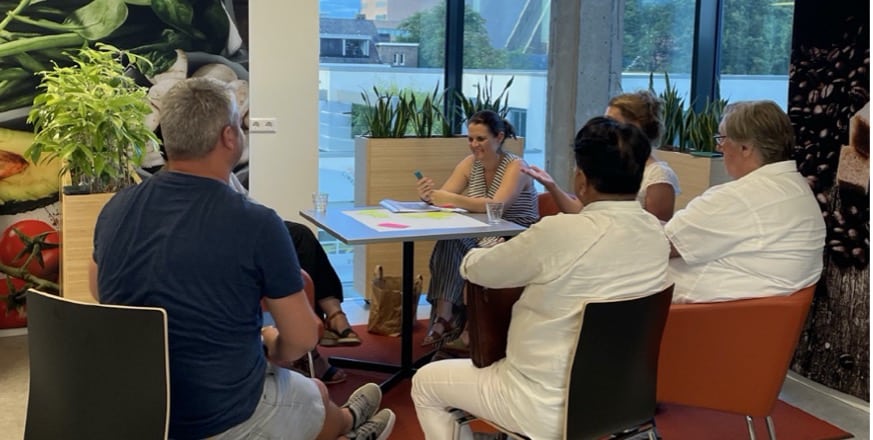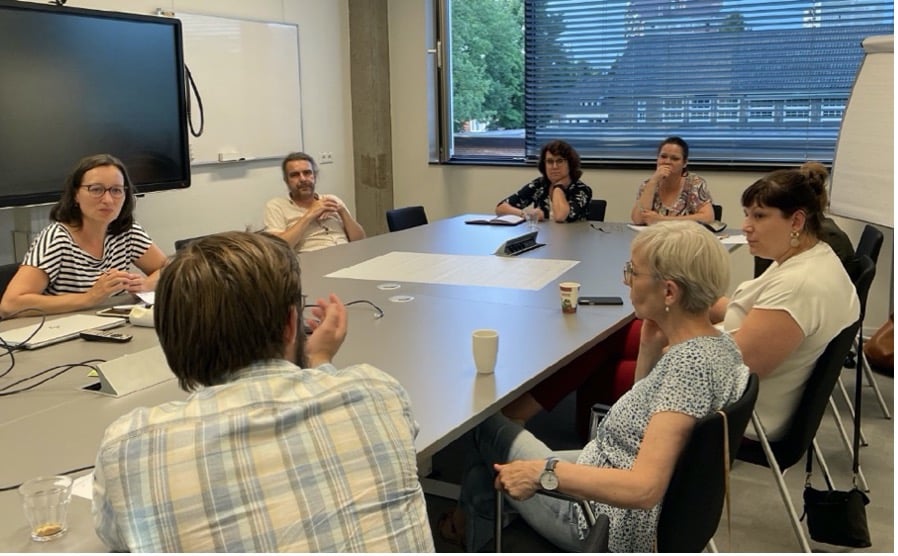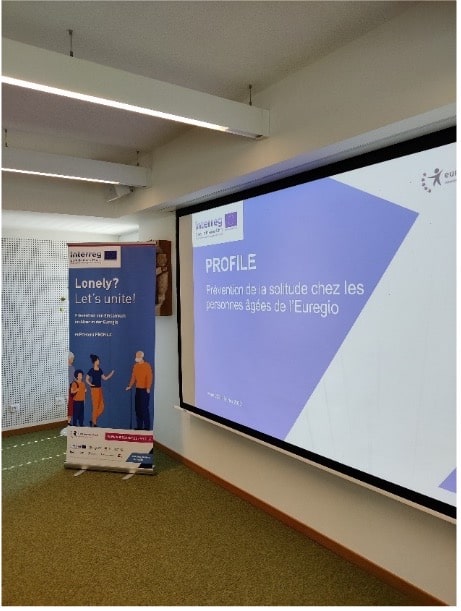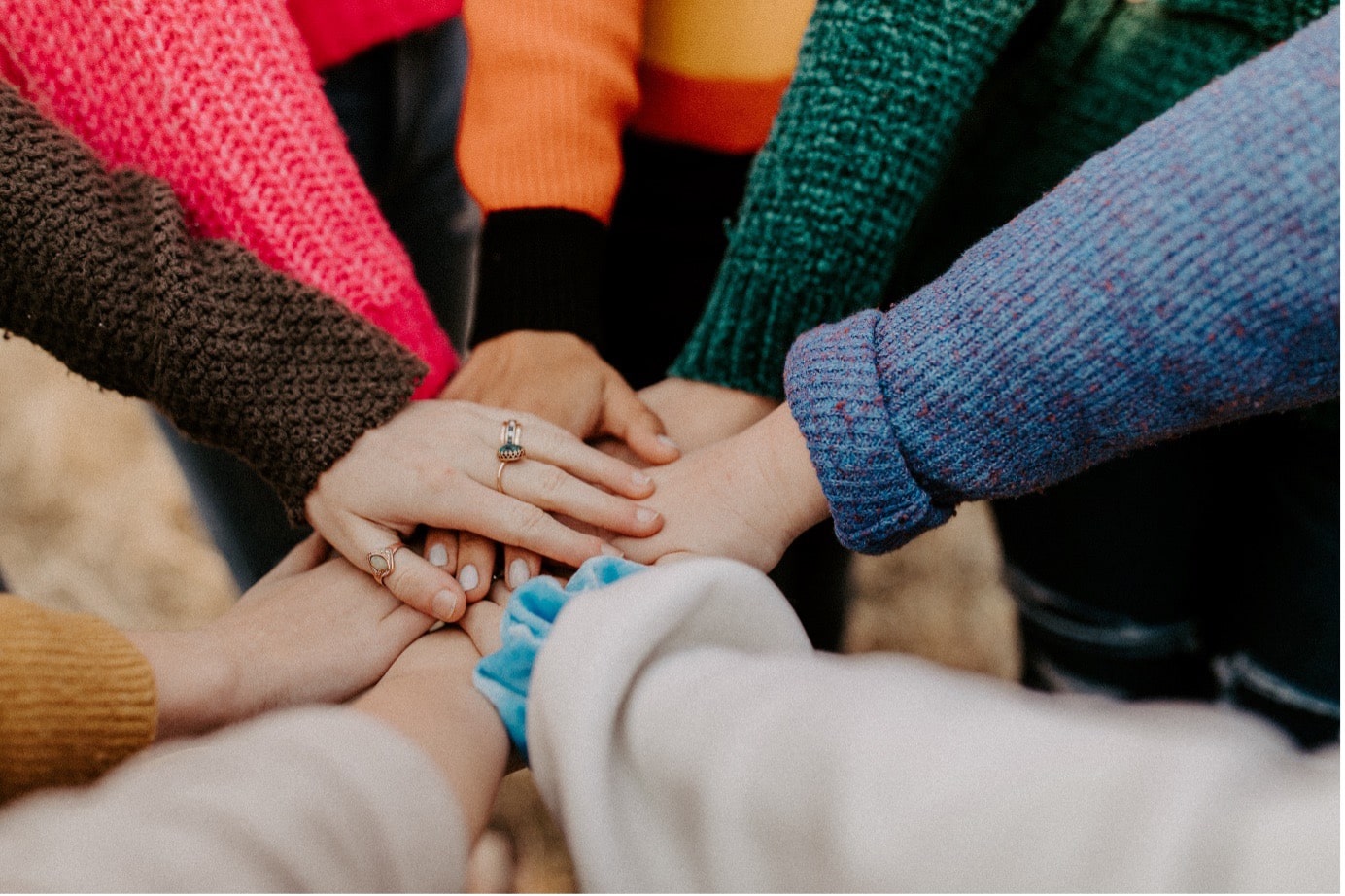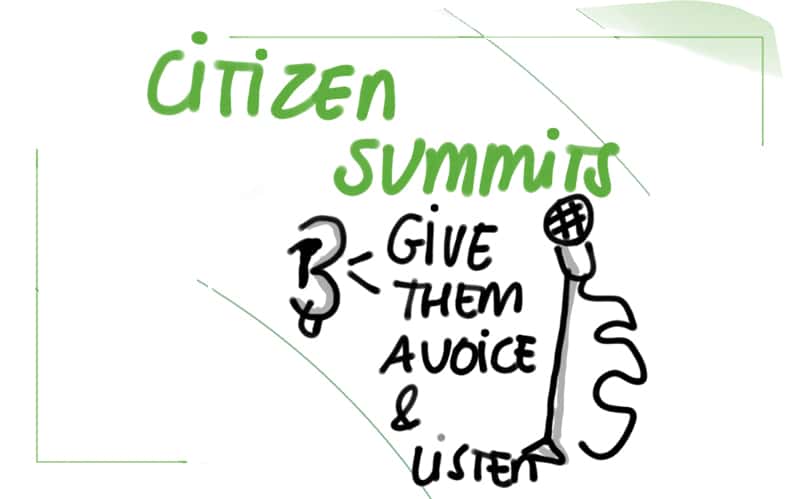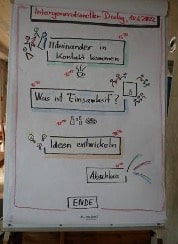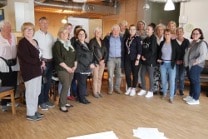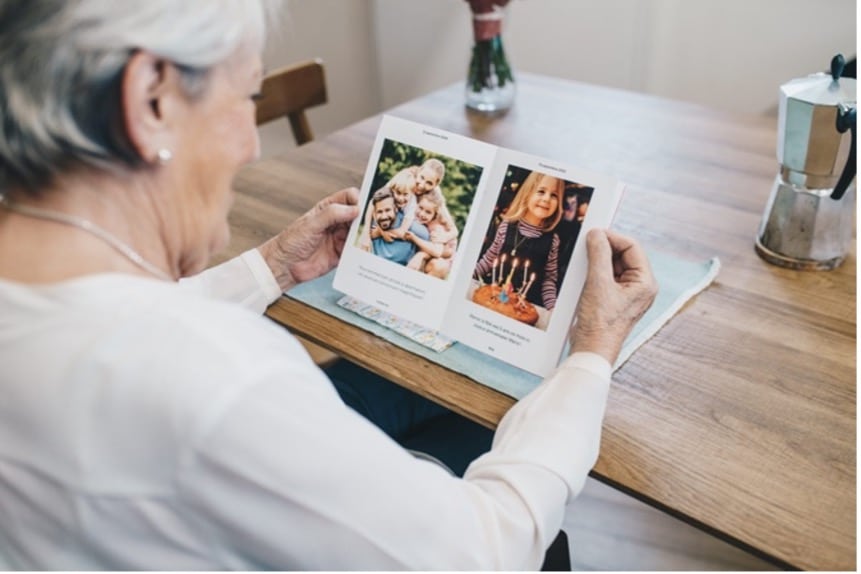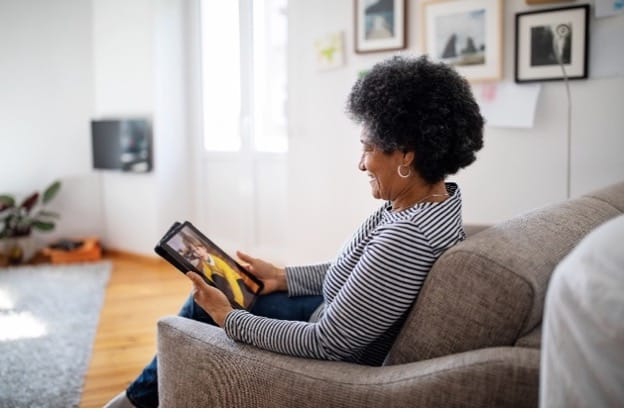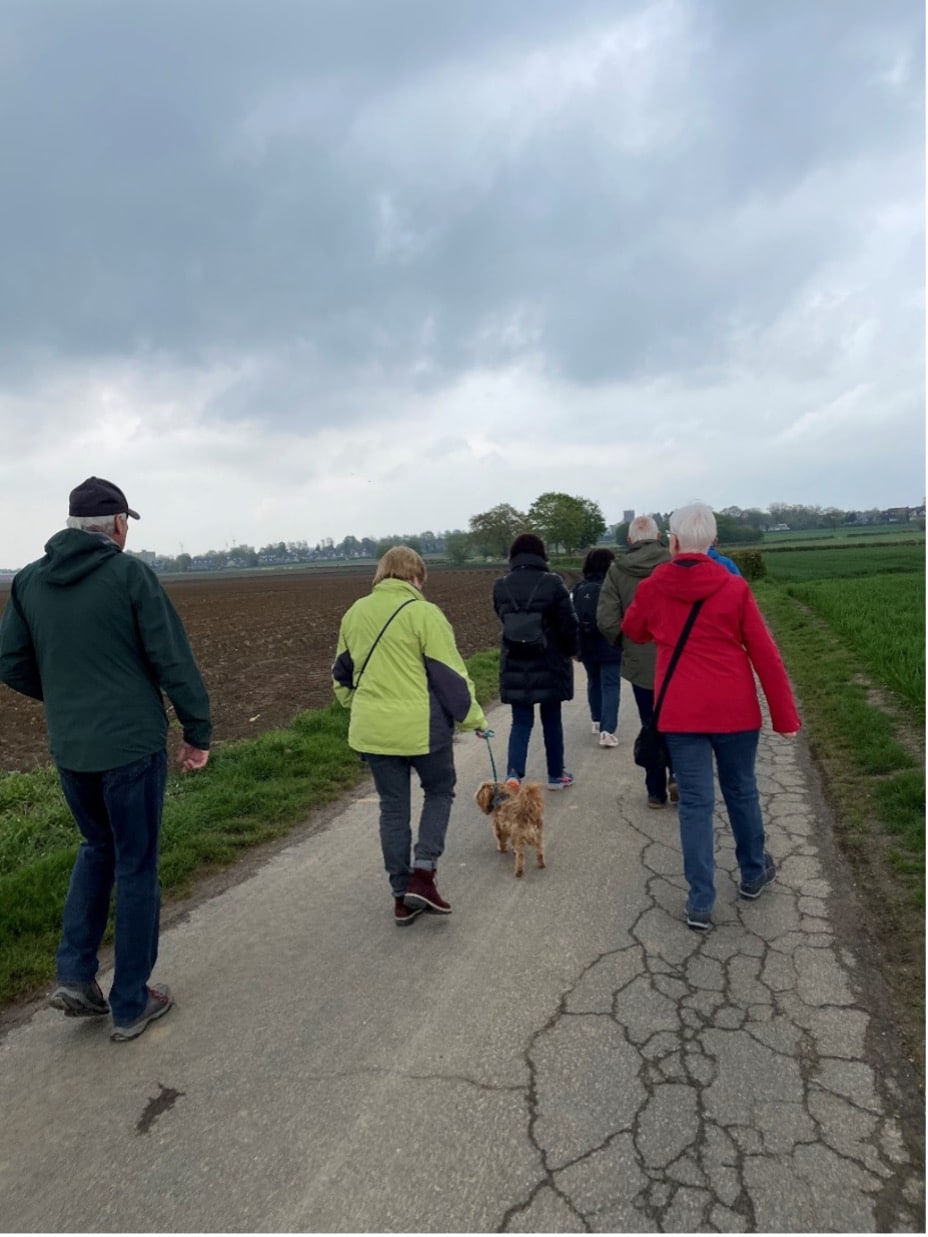Meetings with the associated partners on the Walloon side and in Germany
We are happy to have a large number of associated partners from the EMR who support the PROFILE project with their expertise and network. We met with our partners and discussed the current status of the project.
Meetings on the Walloon side
Presentation of the project’s progress
Since April 2021, the project partners have been working together to create tools and implement actions. An important aspect of these two elements is to respond to the needs and expectations of the relevant stakeholders. However, our objective is not to redo what has already been done or to respond to a demand that does not exist. Therefore, it is essential for each region to meet with associated partners and interested persons.
During these two dates in June, we were able to discuss the different accomplishments: the theatre play, the inventory of good practices and a guide to set up intergenerational actions. Overall, everyone had the opportunity to express themselves on their everyday professional life, their needs but also on what already exists and is important in the area of action. These moments also allowed us to gather the interests of each one regarding the actions and the proposed tools. It illustrates a valuable exchange that allows us to strive for our achievements, which meets the respective needs in the best way possible.
Exchange between the associated partners
These two meetings were more than just presenting the progress on actions and instruments, but rather a day of exchange. We wanted to give everyone the opportunity to express their everyday working life, their experiences or raising questions. The realities of each actor are overlapping and a review on the experiences and resources of every attendee allows us to proceed with and strengthen the actions carried out. Thus, we were able to address issues such as:
- Mobility difficulties that make it hard for the elderly to participate in certain actions
- The difficulty to meet and identify certain isolated people
- The need to be able to identify more easily the actors they can call upon
- The importance of meeting people, listening to their needs and make them as a starting point
- The need to exchange between the actors within the field
The meetings highlighted the multitude of subjects around the loneliness of the elderly, but likewise emphasized the work of the actors within the field of prevention, awareness-raising and countering loneliness. The need for meetings and exchanges is existent and continues to be one of the central objectives of the PROFILE project.
We would like to thank each of the project’s associated partners for their participation in these meetings, for their responses to our requests and for their interest in this project.
Meeting in Germany
Cooperation between BAGSO and four associated and regional partners in the EMR
The cooperation between BAGSO and representatives from 4 partner organisations in the EMR started with a digital meeting on 16 December 2021: The Aachen city region, the Düren district, the Maltesers in the Aachen diocese and the Aachen/Eifel regional office for older age, care and dementia.
During the following meetings held in February, May and June 2022, current initiatives and projects from all the regions were discussed. Main points of the discussion included experiences with intergenerational exchange, the consequences of the Corona period and older people’s fear of stigmatisation. Results of a study from Aachen supports the assumption: The development of innovative methods for special dialogue formats on the topic of loneliness is very important.
Through regional events and networking activities, the partnership promoted the participation of younger and older citizens in the 4.5-hour “Generation Dialogue on Loneliness” on 10 June 2022 in Düren. In total, 17 participants from all regions participated enthusiastically in the intergenerational exchange. The 4.5-hour training on the “Guidelines for the preparation and implementation of an intergenerational dialogue event on the topic of loneliness” on 24.6.22 in Herzogenrath, offered the opportunity to engage in cross-border exchange and qualification.
Associated partners on our website
You want to learn more about our associated partners and how they support PROFILE? Then take a look here.
